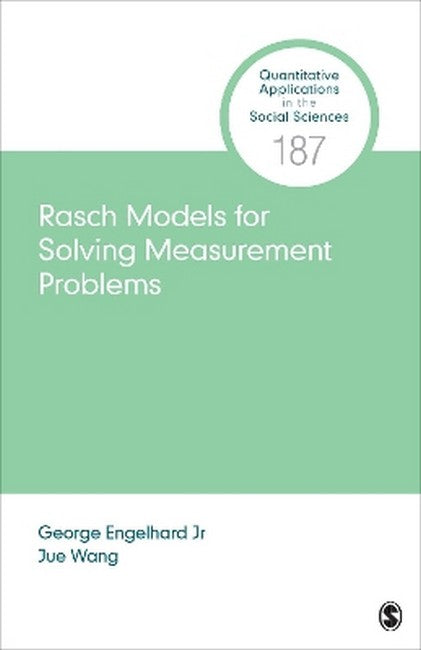George Engelhard, Jr., Ph.D. joined the faculty at The University of Georgia in the fall of 2013. He is professor emeritus at Emory University (1985 to 2013). Professor Engelhard received his Ph.D. in 1985 from The University of Chicago (MESA Program--measurement, evaluation, and statistical analysis). He is the author of two books: Invariant measurement with raters and rating scales: Rasch models for rater-mediated assessments (2018 with Dr. Stefanie A. Wind) and Invariant measurement: Using Rasch models in the social, behavioral, and health sciences (2013) He is the co-editor of five books, and he has authored or co-authored over 200 journal articles, book chapters, and monographs. Professor Engelhard was a co-editor of the Journal of Educational Measurement. He serves on several national technical advisory committees on educational measurement and policy in several states in the United States. In 2015, he received the first Qiyas Award for Excellence in International Educational Assessment recognizing his contributions to the improvement of educational measurement at the local, national and international levels. He is a fellow of the American Educational Research Association. Jue Wang, Ph.D. is an assistant professor in Research, Measurement & Evaluation Program at The University of Miami. Dr. Wang received her Ph.D. in Quantitative Methodology (QM) Program under Educational Psychology at The University of Georgia (UGA) in 2018. She also obtained a M.S. degree in Statistics at UGA. While at UGA, Dr. Wang was awarded the Owen Scott Doctoral Research Scholarship in 2016 recognizing the contribution of her research work on evaluating rater accuracy and perception using Rasch measurement theory. Furthermore, she received the QM Outstanding Student Award in 2018 recognizing her accomplishments in research, teaching, and service during graduate school. Her research focuses on examining rating quality and exploring rater perception in rater-mediated assessments using measurement models, such as a family of Rasch models, unfolding models, and multilevel item response models. She has published in major journals related to measurement including Educational and Psychological Measurement, Journal of Educational Measurement, Assessing Writing, and Psychological Test and Assessment Modeling.
Request Academic Copy
Please copy the ISBN for submitting review copy form
Description
Chapter 1: Introduction Chapter 2: Constructing a Rasch Scale Chapter 3: Evaluating a Rasch Scale Chapter 4: Maintaining a Rasch Scale Chapter 5: Using a Rasch Scale Chapter 6: Conclusion
I am impressed that the authors cover so many Rasch measurement topics perfectly in this small book. Specifically, various Rasch-related measurement theories and fundamental knowledge with illustrative analyses in each chapter make this book an extremely useful reference for Rasch researchers and practitioners. Tables and Figures the authors created in this book are extremely helpful to better understand the contents. I will definitely adopt this book as a required reading in my Rasch models course and recommend it to my graduate students and colleagues who are interested in applying Rasch models. -- Yi-Hsin Chen This book provides an excellent overview of the theory and special procedures that are available for Rasch model applications. -- Susan Embretson This book provides a concise and yet clear treatment of using Rasch measurement theory in developing and maintaining a scale in the social sciences. The use of a construct map makes for an intuitive understanding of key concepts and procedures such as scale development and measurement invariance. -- Yanyan Sheng This book is a must read for anyone who wants to understand how Rasch measurement is much more than a set of statistical models. It is a measurement theory that can help practitioners to achieve their core goals in developing and using scales, and this book details the topics that support such uses of the theory. -- A. Corinne Huggins-Manley

